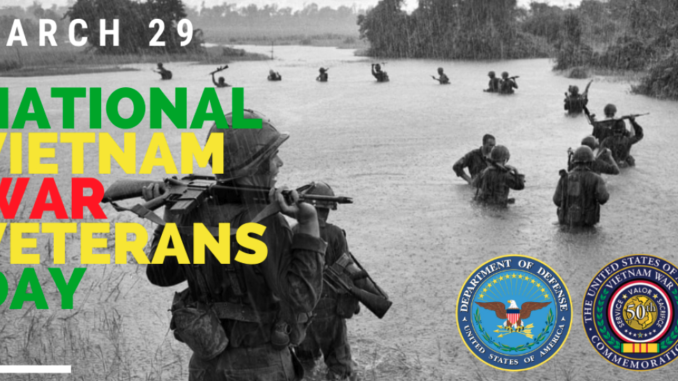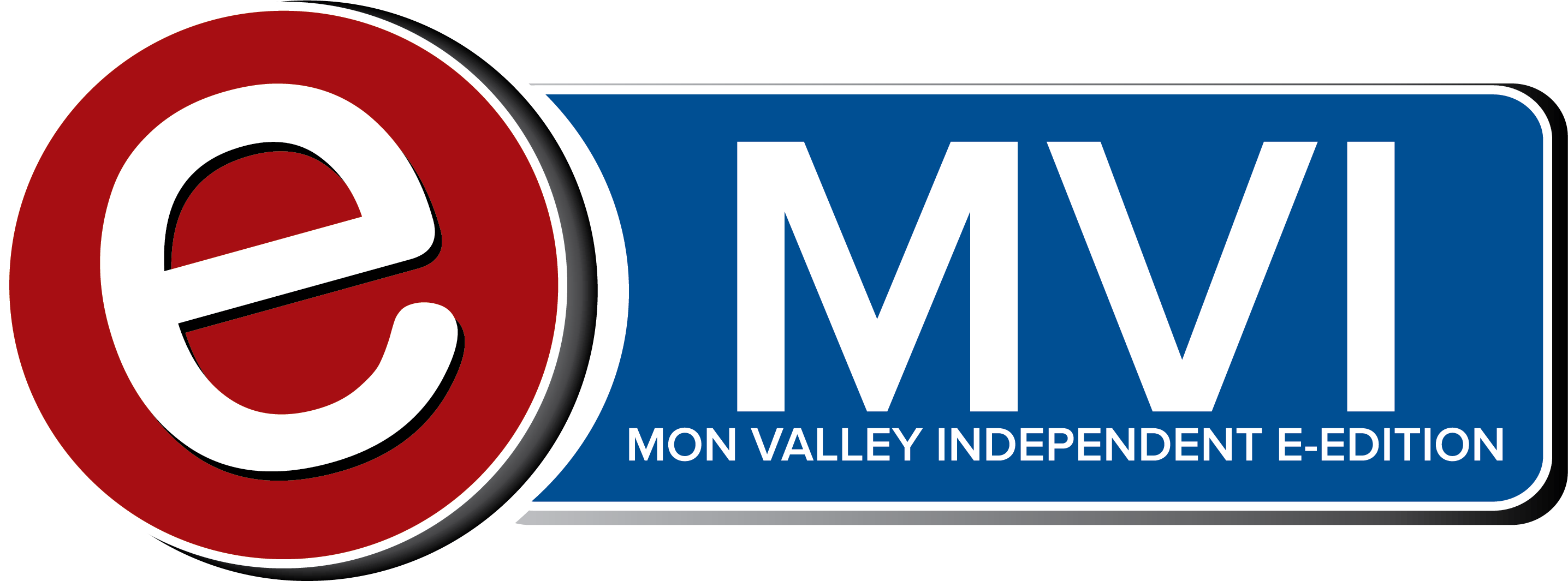
TODAY, MANY OF US WILL GO TO CHURCH to observe Good Friday, the day on which Christians annually observe the commemoration of the crucifixion of Jesus Christ. While there, please take a moment to say a prayer — or even just a simple thank you — for our Vietnam veterans.
Today is also National Vietnam War Veterans day — a day to pay homage to the brave men and women who served in the Vietnam War.
The Vietnam War Veterans Recognition Act of 2017 was signed into law by 45th U.S. President Donald J. Trump, designating every March 29 as National Vietnam War Veterans Day.
U.S. involvement in Vietnam started slowly with an initial deployment of advisers in the early 1950s, grew incrementally through the early 1960s and expanded with the deployment of full combat units in July 1965. The last U.S. personnel were evacuated from Vietnam in April 1975.
Approximately nine million Americans served during the Vietnam era (Nov. 1, 1955, to May 15, 1975). More than six million are still alive.
The Vietnam War Veterans Recognition Act of 2017 established March 29 as the day to pause and commemorate, remember, recognize and honor Vietnam veterans, former prisoners of war, those listed as missing in action and their families.
March 29 was chosen for several reasons. It was on this date 49 years ago that the last combat troops departed Vietnam. It was also on this day, nearly half a century ago, that Hanoi freed the remaining prisoners of war the Republic of Vietnam was willing to acknowledge.
America entered the war with the almost unanimous approval of Congress and was joined by five other nations. As it had been for almost 200 years, America’s youth marched toward the sound of the guns.
But as a nation, we were coming apart, and the nationwide pent-up anger about the war and other national issues of the time was directed not at those who sent us to war, not at those who abandoned us, not at those who dodged the draft and not even toward those who entered the armed forces and then deserted to avoid the agreement they entered into. The hostility and resentment were directed at those who had answered the nation’s call, the returning warriors who had carried out their mission, completed their tour of duty and returned home. And in many cases, the ire was also directed toward those who simply supported those who answered the call.
It was a national tragedy.
While most of them were away from home, America had become something unrecognizable to the returning American warriors. Unlike their fathers, uncles and older brothers who had served in World War II and the Korean War, they returned to a country where their military service was not honored. The Vietnam veterans were chastised outcasts of society. Congress now opposed the war; our president was looking for a way out. Military recruiters were banned from college campuses, ROTC facilities were bombed, desertion rates skyrocketed, draftees fled to other welcoming countries, fathers assisted sons in avoiding military service, and resisters of the war morphed into resisters of the warriors. Stories were fanned of rampant drug use and atrocities, and Hollywood joined the anti-war/anti-warrior advocates.
Men returning from war were asked or ordered to remove their uniform before appearing in public. Men who had served their time honorably chose to hide their military service.
Times and attitudes had changed.
There were no ticker-tape parades, no televised homecomings. Veterans began to shy away from their service, especially as the rash of fake Vietnam War veterans began appearing on national news broadcasts claiming they had committed atrocities while serving. It was tragic. Never before had a nation treated its returning veterans so inappropriately for so long. And to no other group of veterans does this nation owe an apology like it does to Vietnam veterans.
We’re working on it. That’s the significance of Vietnam War Veterans Day.
The establishment of the Vietnam War Veterans Day was a giant step forward. More recently, it was in 2018 when the first government-issued Vietnam War Veteran pins were cast and when we began a process of welcoming and recognizing Vietnam veterans on a large scale.
Our Vietnam veterans should have always been honored, celebrated and praised for their service and sacrifice. They were not. America failed them, leaving a dark stain in our history. National Vietnam War Veterans Day exists to make sure this never happens again.


